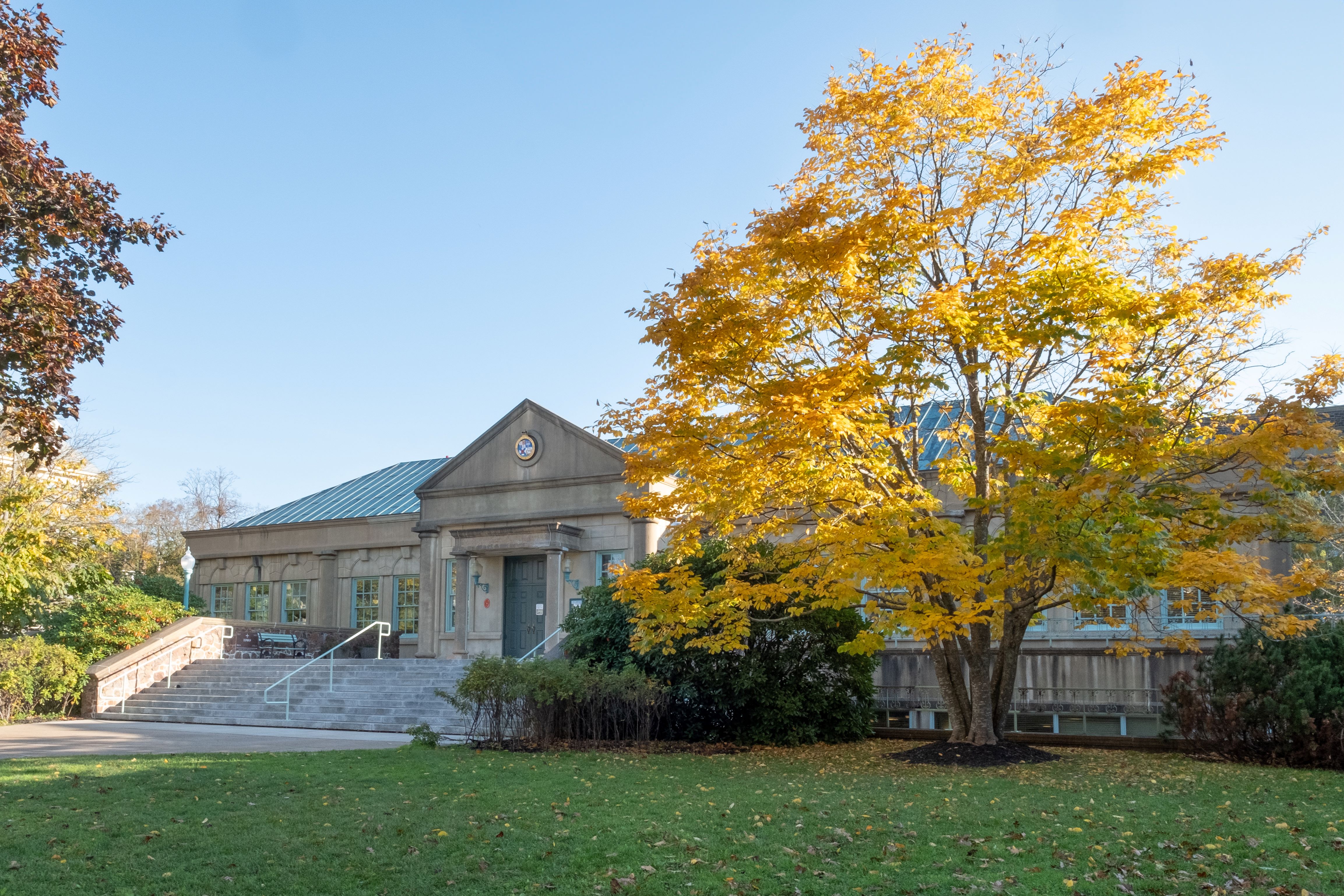Top 10 Best Liberal Arts Colleges in Canada: A Comprehensive Guide for 2024
Unveiling Canada’s Liberal Arts Landscape
In an era of rapid technological advancement and global interconnectedness, the value of a liberal arts college education has never been more pronounced. Liberal arts colleges in Canada offer a unique blend of interdisciplinary studies, creative writing, critical thinking, interdisciplinary learning, and hands-on learning experiences that prepare students for the complexities of the modern world.
Canadian liberal arts institutions stand out for their commitment to fostering well-rounded individuals capable of adapting to diverse career paths. These colleges emphasize not only academic excellence but also personal growth, civic and community engagement throughout, and global awareness. For those interested in exploring the depths of humanities social science, or computer science, a liberal arts education offers unparalleled opportunities to develop a broad skill set highly valued by employers across various sectors.
Criteria for Ranking Canada’s Top Liberal Arts Colleges
To compile our list of the top universities and schools as the best liberal arts colleges four universities in Canada, the best universities we considered several key factors:
1. Academic excellence and curriculum diversity 2. Faculty expertise and student-to-faculty ratio 3. Research opportunities and facilities 4. Campus life and extracurricular activities 5. Career outcomes and alumni success
These criteria ensure a holistic evaluation of innovative curriculum at each institution, reflecting both the quality of education and the overall student experience.
Top 10 Best Liberal Arts Colleges in Canada
1. University of King’s College, Halifax
University of King’s College stands as Canada’s oldest chartered university, renowned for its interdisciplinary Foundation Year Program. Located in Halifax, Nova Scotia, King’s offers a unique educational experience that combines traditional liberal arts with innovative programs in journalism, contemporary studies, and science and early modern studies.
The Foundation Year Program is a cornerstone of King’s education, providing first-year students with an intensive, interdisciplinary introduction to philosophy and the history of Western thought and culture. This program sets King’s apart, fostering critical thinking and analytical skills that serve students well throughout their academic careers and beyond.
King’s also boasts a strong journalism program, preparing students for careers in digital media, broadcast, and print journalism. The college’s small size (around 1,000 students) allows for intimate class sizes and close interaction with faculty, creating a tight-knit academic community.

2. Quest University, Squamish
Quest University in Squamish, British Columbia, takes a revolutionary approach to liberal arts education. With its block program, students focus on one course at a time, fostering deep engagement and experiential learning. Quest’s stunning campus, nestled in the Coast Mountains, and small class sizes create an intimate learning environment that encourages intellectual curiosity and personal growth.
The block system at Quest is unique in Canada, allowing students to immerse themselves fully in each subject for 3.5 weeks. This intensive approach promotes hands-on learning and real-world application of knowledge. Quest’s curriculum is designed to be interdisciplinary, with students creating their own majors or “Question” as it’s called at Quest, which allows student to for a truly personalized education.
With a student body of around 700, Quest offers an intimate learning environment where students can form close relationships with peers and faculty. The university also emphasizes outdoor education and sustainability, taking advantage of its beautiful natural surroundings.
3. St. Thomas University, Fredericton
St. Thomas University, located in Fredericton, New Brunswick, is exclusively dedicated to liberal arts. Known for its strong programs in humanities and social sciences, St. Thomas emphasizes critical thinking and social responsibility, preparing students to become engaged citizens and leaders in their communities.
St. Thomas offers over 30 academic programs, including unique offerings such as Human Rights, Native Studies, and Criminology. The university is known for its liberal education and its commitment to social justice and community engagement, with many programs incorporating service learning and internship opportunities.
With around 2,000 students, St. Thomas provides a close-knit community feel while still offering a wide range of academic and extracurricular activities. The university’s location in the capital city of New Brunswick provides students with opportunities for internships and engagement with provincial government and non-profit organizations.
4. Acadia University, Wolfville
Acadia University in Wolfville, Nova Scotia, combines a rich liberal arts tradition with cutting-edge research opportunities. Its picturesque campus and strong sense of community foster a supportive learning environment where students can explore diverse academic interests while developing valuable life skills.
Acadia is a best university known for its strong programs in the arts, sciences, and professional studies. The university offers over 200 degree combinations, allowing students to tailor their education to their interests and career goals. Acadia’s Co-operative Education program is particularly notable, providing students with valuable work experience in their field of study.
The university’s location in the Annapolis Valley provides a unique backdrop for study, with opportunities for environmental and agricultural research. Acadia’s commitment to sustainability is evident in its curriculum and campus initiatives, making it an excellent choice for students interested in environmental studies.
5. Mount Allison University, Sackville
Mount Allison University, situated in Sackville, New Brunswick, has consistently ranked as one of Canada’s top undergraduate universities. Known for its strong arts, sciences, and commerce programs, Mount Allison offers students a personalized education with ample opportunities for research and creative pursuits.
Mount Allison’s liberal arts and science curriculum encourages students to explore various disciplines before focusing on a major. The university is particularly renowned for its fine arts program, which throughout history has produced many notable Canadian artists. The Owens Art Gallery, Canada’s oldest university art gallery, is located on campus and provides students with hands-on experience in curation and art management.
With a student population of around 2,300, Mount Allison provides a close-knit community where students can easily engage with faculty and participate in research projects. The university’s Undergraduate Research Grant program allows students to conduct independent research, a rare opportunity at the undergraduate level.
6. Bishop’s University, Sherbrooke
Bishop’s University in Sherbrooke, Quebec, provides a close-knit community where students can thrive academically and personally. With its bilingual setting and diverse international student- body, Bishop’s offers a unique cultural experience alongside its robust liberal arts curriculum.
Bishop’s is known for its strong academic programs in business, education, humanities, natural sciences, and social sciences. The university’s emphasis on experiential learning is evident in its internship programs, cooperative education opportunities, and study abroad options.
With approximately 2,800 students, Bishop’s maintains a small-college feel while offering a wide range of academic and extracurricular activities. The university’s location in Quebec’s Eastern Townships provides a unique bilingual environment, allowing students to improve their French language skills while studying in English.

7. St. Francis Xavier University, Antigonish
St. Francis Xavier University, located in Antigonish, Nova Scotia, is renowned for its strong sense of community and commitment to social justice. StFX, as it’s commonly known, offers a wide range of liberal arts programs and is particularly noted for its service-learning initiatives and global exchange opportunities with different countries.
StFX is home to the Coady International Institute, a world-renowned center for community-based development and leadership education. This connection provides international students here with unique opportunities to engage in global development issues and social justice initiatives.
The university’s X-Ring, awarded to graduating students, is a symbol of the strong community and alumni network associated with StFX. With around 5,000 students, StFX offers a medium-sized university experience with a strong emphasis on community engagement and leadership development.
8. Trent University, Peterborough
Trent University in Peterborough, Ontario, stands out for its innovative approach to liberal arts and sciences. With its college system and emphasis on interdisciplinary studies, Trent provides a unique learning environment that encourages students to explore diverse perspectives and develop critical thinking skills.
Trent’s college system, inspired by Oxford and Cambridge, creates smaller communities within the university where students can live, study, and socialize. This system fosters a sense of belonging and facilitates interdisciplinary learning.
The university is known for its strong environmental programs, taking advantage of its location on the Otonabee River to provide hands-on learning experiences. Trent’s Indigenous Studies program is one of the oldest in North America, reflecting the university’s commitment to reconciliation and Indigenous knowledge.
9. Huron University College, London
Huron University College, affiliated with Western University in London, Ontario, offers the benefits of a small liberal arts college within the context of a major research university. Huron’s personalized approach to education and strong emphasis on leadership development set it apart as a top choice for liberal arts students.
With around 1,300 students, Huron provides an intimate learning environment while still allowing students access to the resources and facilities of Western University. The college is known for its strong programs in business, global studies, and psychology.
Huron’s Centre for Global Studies provides students with opportunities to engage with global issues and develop intercultural competencies. The college’s emphasis on liberal studies and on ethical leadership is reflected in its curriculum and extracurricular activities, preparing students for careers in various sectors.
10. Campion College, Regina
Campion College, federated with the University of Regina in Saskatchewan, rounds out our list with its Jesuit-inspired approach to liberal arts education. Campion’s focus on social justice, ethical leadership, religious studies, and holistic development provides students with a transformative educational experience.
As a Jesuit college, Campion emphasizes the development of the whole person – intellectually, spiritually, and socially. The college offers programs in the arts, sciences, and fine arts, with a particular strength in Catholic studies.
While Campion is a smaller college with around 700 students, its federation with the University of Regina allows students to access a wide range of courses and facilities. The college’s commitment to community service and social justice is reflected in its curriculum and extracurricular activities, providing students with opportunities to engage in meaningful volunteer work and community projects.
For those embarking on their college search, these top liberal arts colleges and universities in Canada offer excellent options. While each institution has its unique strengths, they all share a commitment to providing a well-rounded education that prepares students for success in an ever-changing world. Whether you’re interested in US liberal arts colleges or Canadian institutions, understanding the admissions process is crucial for a successful application.
Navigating the Application Process
Applying to liberal arts colleges in Canada requires careful planning and attention to detail. While each institution has its specific requirements, there are some general tips to keep in mind:
1. Start early: Begin researching and preparing applications at least a year in advance. 2. Meet deadlines: Pay close attention to application deadlines, which can vary by institution and program. 3. Craft a compelling personal statement: Highlight your unique experiences, interests, and how they align with the college’s values. 4. Secure strong recommendations: Choose recommenders who can speak to your academic abilities and personal qualities. 5. Showcase extracurricular activities: Liberal arts colleges value well-rounded individuals, so highlight your involvement outside the classroom.
For international students, additional requirements may include English language proficiency tests and visa applications. Understanding the nuances of larger universities’ admissions processes can significantly boost your chances of acceptance.
Many Canadian liberal arts colleges offer generous financial aid packages and scholarships to both domestic and international students. Research each institution’s financial aid options and application procedures carefully to maximize your opportunities for support.
The Future of Liberal Arts Education in Canada
The landscape of liberal arts education in Canada continues to evolve, adapting to the changing needs of students and society. Emerging trends in schools that study liberal arts and teaching of art, include:
1. Increased focus on interdisciplinary studies 2. Integration of technology and digital literacy across curricula 3. Emphasis on global perspectives and cross-cultural competencies 4. Expansion of experiential learning opportunities 5. Growing recognition of Indigenous knowledge and reconciliation efforts
These innovations ensure that liberal arts degree graduates are well-equipped to tackle complex global challenges and thrive in diverse professional environments. According to a 2023 report by Statistics Canada, liberal arts graduates consistently demonstrate high levels of job satisfaction and career adaptability, with 87% reporting that their education in a liberal arts program or studies has prepared them well for their current roles.

Making Your Decision: Beyond the Rankings
While rankings provide valuable insights into the liberal art school itself, choosing the right liberal arts college for undergraduate students involves considering various personal factors. As you embark on your liberal arts college name search, consider:
1. Academic programs: Ensure the college offers majors and minors aligned with your interests. 2. Campus culture: Look for an environment that suits your personality and values. 3. Location: Consider factors like climate, proximity to home, and urban vs. rural settings. 4. Size: Reflect on whether you prefer a smaller, intimate campus or a larger, more diverse community. 5. Extracurricular opportunities: Explore clubs, sports, and other activities that interest you.
Campus visits, whether in-person or virtual, can provide invaluable insights into the college’s atmosphere and help you determine if it’s the right fit for you. Many Canadian liberal arts colleges offer tour programs and open houses throughout the year.
Embracing the Liberal Arts Journey
Choosing to pursue a liberal arts education in Canada is more than just a decision about your next four years; it’s an investment in your long-term personal and professional growth. The skills developed through a liberal arts curriculum – critical thinking, effective communication, adaptability, technical skills and cultural competence – are increasingly valued in today’s rapidly changing job market.
A 2024 study by the Canadian Association of Liberal Arts Colleges found that 93% of liberal arts degree graduates reported feeling well-prepared for the evolving demands of their careers, compared to 78% of graduates from other programs. This adaptability is crucial in an era where many of tomorrow’s jobs haven’t been invented yet.
Moreover, the emphasis on interdisciplinary thinking and problem-solving equips liberal arts graduates to become innovators and leaders across various sectors. From tech startups to non-profit organizations, employers are recognizing the unique value that liberal arts graduates bring to the table.
As you consider your options among Canada’s top liberal arts colleges best universities, remember that each institution offers a unique pathway to discovery, growth, and success. Whether you’re drawn to the historic charm and history of King’s College or the innovative approach of Quest University, the journey you’re about to embark on will shape not just your career, but your worldview and your capacity to make a positive impact on society.
While Canada in fine arts still boasts excellent options, some students may also consider US in liberal arts schools small universities and colleges for a broader perspective. However, the institutions listed here represent the cream of the crop in Canadian liberal arts higher education now, each offering a transformative experience that will prepare you for a lifetime of learning, growth, and success.
In conclusion, the best liberal arts colleges best universities in Canada offer more than just an education – they provide a foundation for a life rich in knowledge, purpose, and possibility. As you take the next steps in your educational journey, embrace the opportunities that lie ahead, and prepare to join a community of thinkers, innovators, and leaders who are shaping the future of Canada and the world.









